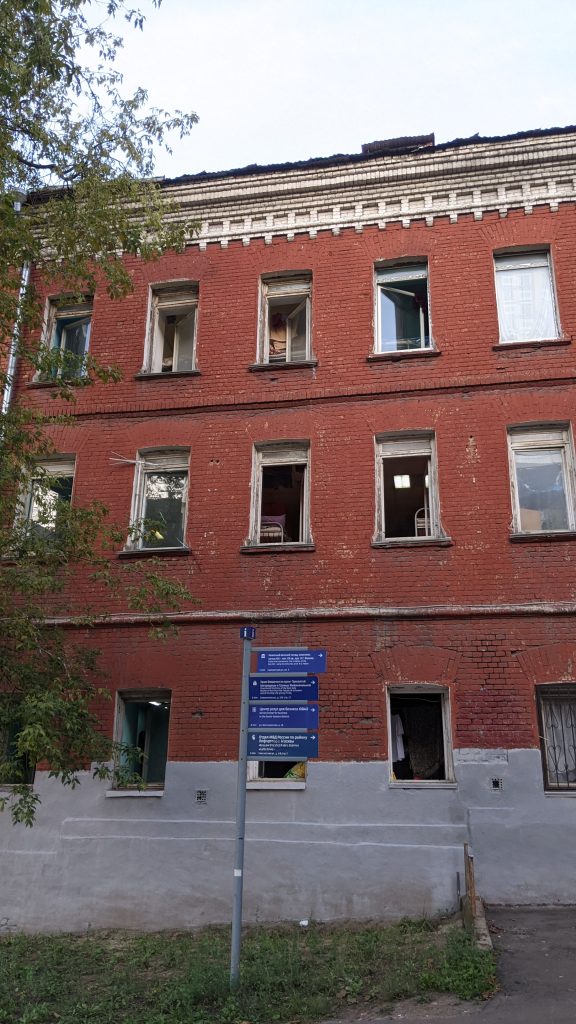
A draft of the UN’s global cities prosperity ranking 2022 saw Moscow take first place for ‘liveability’. Cue crowing from RT, who were the only outlet to run the story today. Coverage highlights Moscow’s scores for quality of life and wellbeing, but what does liveability really mean? This was, ironically, one of the concluding points of my book [pdf opens automatically]: that for their inhabitants, many small deindustrializing towns in Russia are highly ‘habitable’, in comparison to the big cities in Russia. [Links to the rest of the book here]
When indices are published about any ‘quality’ of life measure, I’m always sceptical. The question of course is always – liveable for whom? Moscow is even more diverse than ever, and surely that’s a good thing, right? But what if we substitute more ‘unequal’ for ‘diverse’? Far too often the commentary to these reports is made either by ‘expats’ – who have a very skewed view, obviously, or by the urban middle Russian class who have benefitted most from Mayor Sobyanin’s transformations (themselves mainly a supercharged version of the previous governance – see my series of posts on governance from earlier this year).
Let’s have a quick look at the UN report [annoyingly only opens as a pdf]. It has six criteria: Productivity (and I recommend this recent book on that subject by Michael Haynes), Infrastructure, Quality of Life, and Equity, Environment, and Governance. The premise of the index itself is a little misleading, as it only includes 29 cities in the first place, and there is no clear rationale for selection. We get Delhi, but not Karachi. There’s New York, but no Los Angeles. The exercise seems unintentionally set up to flatter metropolises with lots of mass transit urban mobility, well-paid jobs, housing growth, educational attainment, public space. Note that Quality of Life is a measure independent of Social Inclusion and Equity – the latter only includes income equality as a minor measure with ‘women in local government’ getting as much weight. The index draws on existing UN Sustainable Development Goal indicators (I teach a course on this topic) and adds a few more relating to ‘tech’, airports, road congestion (still a notorious problem in Moscow), science and education, culture and recreation, and e-governance.
Unsurprisingly, Moscow does really well on infrastructure and e-governance. For a non-Asian city, its mass transit really is awe-inspiring as are its joined up ‘state-services’ online portal. Overall, it is third placed, behind Singapore and Toronto. RT got their headline because Moscow scored highest for Quality of Life, but low for Environmental Sustainability, and was middling for Equity. (As an aside it was interesting that London scored spectacularly low for Equity, much lower than Moscow or any Global North city). I don’t have time to go more into the details, but here’s my quick take that reiterates some of the themes of this blog over the last few years.
If you have a professional managerial-level job (we can argue about what that means), Moscow has a much higher quality of life than in other European or NA cities. It’s partly because of the capital premium on such salaries that Moscow attracts. But it’s also because service industry jobs are so badly paid by comparison – the people who dry clean your clothes (delivered back to your flat vacuum-wrapped), chauffeur you to work (my friend in a mid-level managerial job for a state corp has his own 24/7 driver), tutor your children in the evening (an acquaintance who owns a not particularly successful medium-sized business employs a cleaner, live-in nanny, cook and three tutors), deliver your groceries, clean your yard and stairway. Then we come to the backbone of Moscow’s growth – housing (and the infrastructure that follows) – dominated by central Asian migrants trapped in a cycle of exploitation and grey-zone legal status, as eloquently explored in the new book by Rustamjon Urinboyev.

A much more revealing measure would be to compare the cost of a typical basket of goods for the urban poor and urban rich. In Moscow the contrast is staggering. Again, if you’re in the system and have city residency, you gain benefits not only denied to semi-legal migrant construction workers (who can’t even see a doctor), but denied also to the rest of Russia: subsidized transport and other essential services I wrote about in this post. Discounting components like mass transit, greenspaces and e-governance, this is a story about inequality. A couple of ironies I take away are that the people who live well in Moscow make little use of mass transit, e-governance, or green and public spaces, but their service class does. The wealthy consume a lot, sit in cars in traffic, and leave for the country at the weekend (or even fly abroad). In those senses they don’t differ from those that ‘live well’ elsewhere. I will always be an adoptive Muscovite at heart, although nowadays I spend much more time outside the ring road. Like all other cities I’ve lived in, I have a love-hate relationship with it.
A much more interesting discussion last week about relative social exclusion and poverty caught my eye because this debate is too often dominated by discussion of money incomes, and not enough space is made for subjective (or what academics call consensual measures of poverty) assessment by a society of ‘enforced lack of necessities’. Like in the rest of Europe, the author of the piece sees social exclusion in the ability to consume things necessary for a ‘normal life’ – high speed internet, access to a computer or smart phone, holidays away from home, extra-curricular activities for school children, savings, access to affordable credit (these are examples the article gives). On these and other measures, 30-40% of Russians are living in poverty. It might be much lower in Moscow, but it’s still significant.

Another stupid anti-Russian opinion
LikeLike